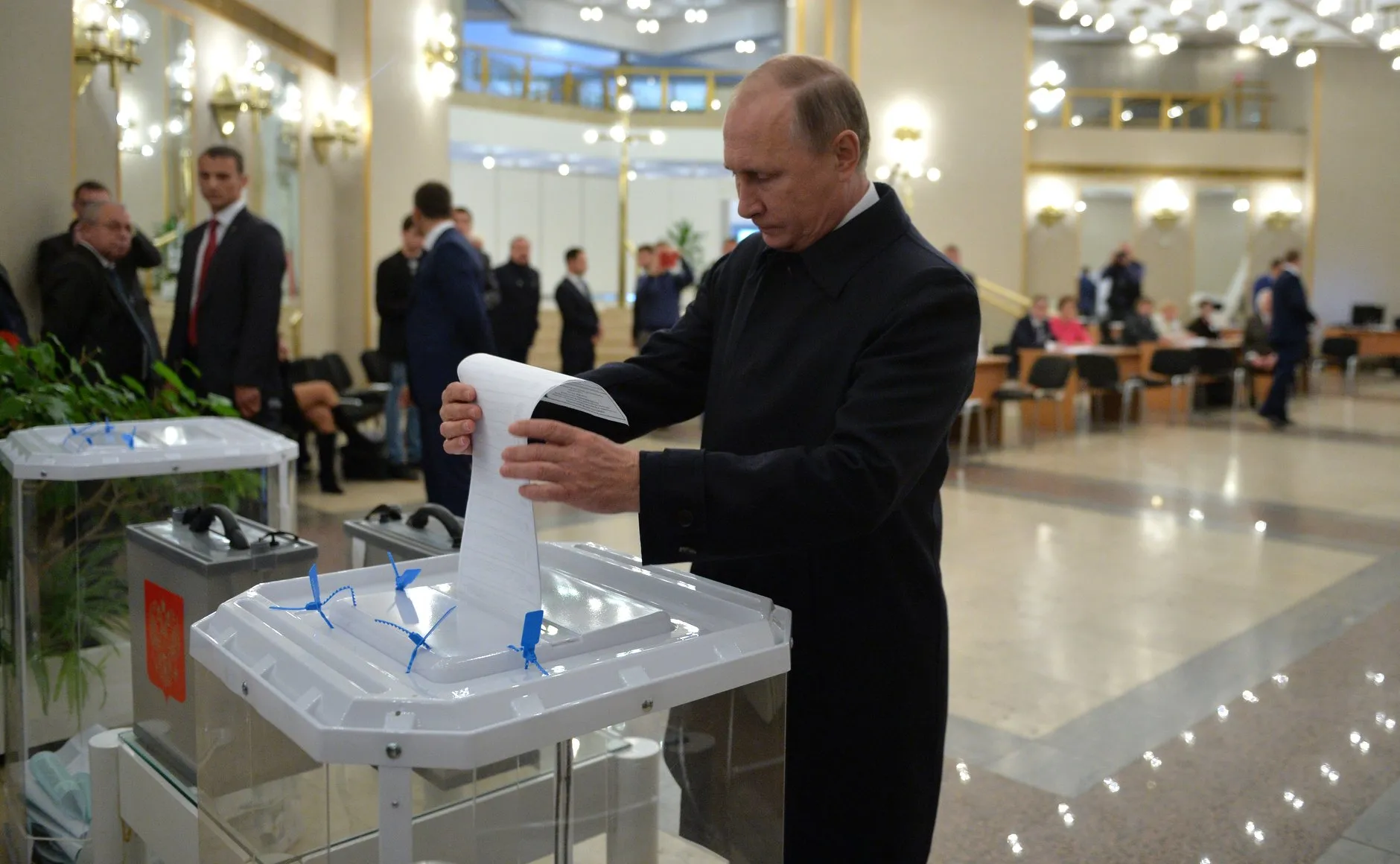
Russia is one of many non-democracies that holds regular national and subnational elections despite the lack of any pretence of democratic contestation. That the upcoming presidential election is expected to be even more humdrum and foreordained than usual has led to a demonstrable lack of interest by the broader world. But despite its stage-managed character and certain outcome, it would be a serious mistake for the rest of the world to ignore it.
Why do autocrats hold elections?
Autocrats have long found elections useful for a variety of reasons: to demonstrate their control at home and abroad, to test the capacity and loyalty of subordinates at the local and regional level to deliver “the right results,” to manage intra-elite conflicts, or to co-opt or marginalize potential opposition. While elections in autocracies occasionally lead to short-term instability by providing potential opposition groups and coup-plotters a common space to strategize, in the long-term they instead strengthen regime stability.
In this case, the Russian state’s electoral goal is to see Putin re-elected by an equal or larger margin and turnout than his previous re-election in 2018, public reinforcing the Kremlin’s message of a nation united behind the war, and not a ‘nation of half supporters.’ While it will get the “right results” in official figures, academics and Russian journalists can have developed sophisticated methods for ascertaining the scale of electoral fraud that could paint a valuable picture of the nuances of the everyday citizens’ support for - or tolerance of – its war on Ukraine.
What do Russians think?
But watching how the Russian state apparatus gets Putin what he wants is only a small part of the reason to pay attention to the elections. Given the lack of demonstrable public interest the campaign has produced so far, we should turn our focus to the wide variety of Russian people to understand how, in a time of war, they understand their own relationship to the Russian state, to each other, and to those of us living abroad. The consequences of Russia’s full-scale invasion have been unevenly distributed across its vast and varied regions, and ways people disengage with the election should tell as much as the ways they do.
When it comes to Russia in 2024, we simply need all the data we can get. Old problems, like the inability to take Russian public opinion surveys at face value, have only grown more acute. We should learn more from sociologists and ethnographers who have carried out in-depth interviews with various classes of Russians, researchers who study Russian social networks, and quantitative analysts that attempt to analyse social behaviour at scale. The election provides what may be a rare chance in the years to come – when the level of ambient discourse about politics is loud enough to permit the rare confidential conversation, or stray data point indicative of a larger truth.
Broadening our understanding
If we want to understand how the war is affecting the populace and Russian governance at the national and subnational level – which, if we want an end to the war on terms that Ukrainians can live with, we certainly do - we will also need to be constantly aware of the limitations of the data we do have. It also might involve a certain amount of humility regarding the intellectual frameworks that have been used to explain the course of international events in the last decade. For all the talk of democratic backsliding – a metaphor which brings to mind the visual of countries sliding back and forth on a linear scale with “full autocracy” at one end and “full democracy” at the other – and a global battle between competing camps of democrats and autocrats in recent years, “autocracy” and “authoritarian” are terms that we apply – albeit carefully - to a wide variety of complex political arrangements, and holding too tightly to these descriptors can blind us to political developments that are in fact new, novel, or breaking free from the prior constraints of path-dependence. A close study of Russia can inform how we understand the sources of stability of contemporary authoritarian states in Eurasia and farther afield. What should we make, for example, of the kinds of civic activism and engagement in Russia that does not fit the ideal western liberal democratic model?
A better understanding of Russian society, politics, and governance is of immediate service to those in its former colonial possessions attempting to break free, for Ukrainians defending themselves in an existential war, and for anyone seeking to understand how “autocracy” functions in the twenty-first century. This electoral cycle is a vital chance not only to add to our sum of knowledge, but to also to look across scientific disciplines to better understand how autocracies function and maintain public support – even sometimes among their colonized peoples.




